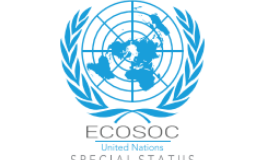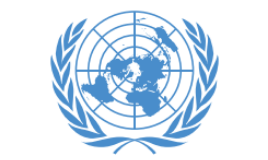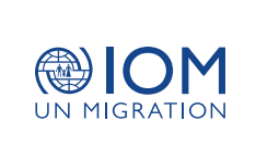Integrated Management Policy
Qatar Charity
was established as a community initiative in 1984 when a group of Qatari philanthropists launched the
"Qatar Orphan Sponsorship Committee"initiative to assist children orphaned by conflicts in Afghanistan and a number of countries in need. The initiative was then expanded to include various charitable activities, to become in 1992 an international humanitarian and development non-governmental organization under the name of Qatar Charity. Qatar Charity continued to grow and expand its reach over the past four decades to become one of the world's largest humanitarian and development organizations, establishing an active international presence, partnerships with United Nations organizations, and international humanitarian memberships and alliances. Qatar Charity's development and humanitarian interventions cover more than 60 countries, with a network of field officed established in 33 countries. Qatar Charity is at the forefront of the urgent humanitarian response to the region's most significant humanitarian crises and disasters and annually benefits approximately 10 million people worldwide.
Qatar Charity
provides life-saving assistance to those affected by conflict, persecution, and natural disasters. It actively contributes to the development assistance of vulnerable and fragile communities and enhances their resilience for survival. It offers sustainable development programmes in the fight against poverty covering the sectors of social welfare, water and sanitation, education, health, food security, and economic empowerment in order to achieve a dignified life for all.
Qatar Charity,
as part of its strategic direction and vision, adopts an Integrated Management System (IMS) that aligns its systems and processes with international standards and specifications, ensures good governance and compliance with local and international legislation, laws, and regulatory and technical requirements, and promotes ethical leadership of Qatar Charity in an effective manner. The Integrated Management System (IMS) also allows the organization to enhance its social responsibility in the State of Qatar or in the countries in which it is located or those in which it works through field offices or partners, and ensures that the organization fulfills its responsibility towards the international community as a non-governmental organization that works in accordance with international principles, standards and best practices in the field of humanitarian and development work in partnership and cooperation with relevant international organizations, and that aims to assist local governments’ in achieving their strategic direction and development plans.
Qatar Charity
deems the Integrated Management System, which includes the quality management system, the risk management system the information security management, the customer contact centers, compliance management systems, and organization governance systems to be an essential factor in providing a quality and distinguished management system to partners, beneficiaries, customers and donors. At the same time, it fulfills its strategic objectives to achieve its organizational aims, vision and mission, principles, values and ethical conduct and meet the needs and expectations of customers and related parties and the stakeholders and the public, and achieve their satisfaction in the field of humanitarian and development work. The IMS also effectively underpins Qatar Charity’s approach that places the beneficiaries at the center of its interests.
Qatar Charity
's integrated management system also sets guiding framework for organizational governance, ensures implementation of governance principles, endeavor towards achieving main governance results in Qatar Charity, ensures strengthening adherence to compliance governance principles, the protection of information, systems, programs and websites from cyber threats, hacking and cybercrime, and the protection of the organization's property and assets from risks that could hinder the continuation of its business and activities and the achievement of its objectives, and also safeguards the organization from the risks of financial crimes such as money laundering, terrorist financing, fraud and corruption, as well as fulfilling customer expectations effectives, efficiently and continuously,
all the while fulfilling the requirements of international specifications:
- (ISO 31000:2018)
- (ISO 27001:2022)
- (ISO 9001:2015)
- (ISO 18295-1:2017)1
- (ISO 37301:2021)
- and ISO 37000:2021
In line with Qatar Charity’s commitment to fully adopt the Integrated Management System and its requirements, the organization is committed at all levels to the following:
- To ensure that the aim of Qatar Charity is set clearly as an organizational aim, to set organizational strategies and its objectives to achieve organizational aim, to set systems that ensure its continuity and sustainability, and to ensure that the aim of Qatar Charity species its engagements for the benefit of the community, stakeholders and environment.
- Implementing the Integrated Management System policy by achieving the objectives of quality management, risk management, information security management, customer contact centers, compliance management systems, and organizations governance systems and following the procedures and instructions of work systems and processes, monitor its implementation and ensure achieving main governance results.
- To ensure Board of Directors effective oversight of Qatar Charity performance and the implementation of its guidance, policies and strategies, amd its compliance to ethical conduct, and ensure the leadership of Qatar Charity in an ethical and effective manner that achieves the values of integrity, efficiency, equity, transparency, and diversity.
- Ensuring compliance of the organization’s programs, projects and activities with the legislation and applicable laws in the State of Qatar and the countries in which it operates, responding to the needs of beneficiaries and maintaining operational practices that comply with legal and other technical requirements.
- Supporting and providing qualified and trained human resources, devices, programs, operational processes, safe work systems, and all resources and requirements for an integrated management system that covers all activities of the organization and supports it in achieving its goals.
- Establishing constructive relationships with beneficiaries, suppliers and partners inside and outside the State of Qatar, enhancing communication and consultation with them, and developing their performance to achieve the objectives of the organization's Integrated Management System.
- Managing strategic and operational risks to ensure that the organization fulfills its goals and tasks, identifying, analyzing and evaluating potential risks that can affect the quality and information security of the services provided by the organization, the continuity of its activities and the compliance of its work with the requirements and applicable laws and the available resources, and implementing all necessary measures to control and mitigate these risks.
- Strengthening adherence to compliance government principles to protect Qatar Charity from consequences related to non-compliance to legal and regulatory obligations, QC’s policies and procedures as well as encouraging effective and safe reporting and whistleblowing.
- Committing to governance principles, policies, manuals and charters that govern the organization’s activities with relevant parties to prevent conflicts of interest, pursuing integrity, transparency and accountability, and defining organizational roles, responsibilities and powers in accordance with the approved organizational structure.
- Regularly monitoring and reviewing the progress and effectiveness of the quality management systems, risk management systems, information security management systems customer contact centers, compliance management systems and organizations government systems to ensure that the Integrated Management System is fully integrated in an effective manner, and frequently evaluating their performance and making necessary updates and evaluations when applicable.
- Integrating the Integrated Management System into the organization’s strategy, plans, processes, activities, systems and policies to ensure the effectiveness and efficiency of the system and ensure it fulfills its objectives.
- Implementing effective security measures in order to protect the activities, operations and physical and informational assets of the organization from all types of risks, whether internal or external, intentional or accidental, and mitigating risks that may threaten information security.
- Ensuring effective protection of information in terms of unauthorized access, confidentiality, integrity and availability by meeting information security requirements, and managing information security risks effectively and efficiently, and to consider information as a strategic resource for decision making, and to decide on the nature of information, to manage, control and report information and ensure its use in a responsible and ethical manner to make effective decisions.
- Ensuring the continuous improvement of the Integrated Management System and its effectiveness through continuous review and evaluation of performance, results, and employee training and performance development.
The Integrated Management Policy has been adopted, published and shared with all employees. All Qatar Charity employees are responsible for implementing and adhering to the present policy which is reviewed and updated annually to ensure its efficiency, suitability, effectiveness and compatibility with all Qatar Charity activities, operations and services. This is a public policy and shall be made available to any party on request.
Yousuf bin Ahmad Al-Kuwari
Chief Executive Officer









